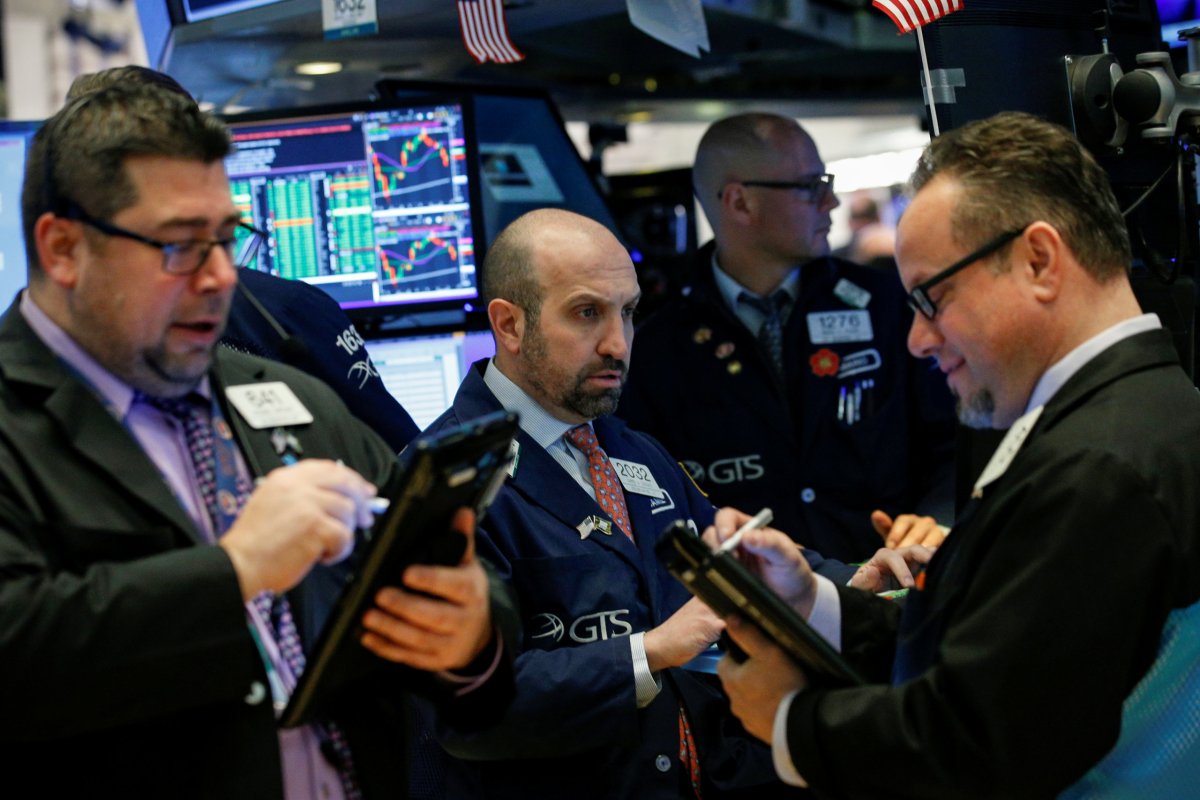By Caroline Valetkevitch
NEW YORK (Reuters) – Nervous stock investors are hoping an unusually U.S. strong earnings season can restore some of the optimism that characterized equity markets last year.
Imploding technology stocks and fears of a trade war have pummeled the market in recent days. Given the surge in volatility this year, there is no guarantee that worst is over.
Analysts predict strong results when reporting season starts up next month, with first-quarter S&P 500 profit growth on track to be the highest in seven years, according to Thomson Reuters data. That follows a blockbuster fourth-quarter period, and recent corporate tax cuts that boosted forecasts for all of 2018.
A robust earnings period would bring back the focus on fundamentals and possibly put a floor under prices, supporting views that the 9-year-old bull market will go on, strategists said.
“It’s going to be earnings,” said Robert Pavlik, chief investment strategist and senior portfolio manager at SlateStone Wealth LLC in New York. “The market has given up so much that earnings can start to redirect attention back into a market that has gotten much cheaper relative to where we were.”
With this year’s sell-off and rising profit forecasts, stocks also are near the cheapest on a price-to-earnings basis that they have been since late 2016. The S&P 500 is trading at about 16.5 times forward earnings, well below the 18.9 level it was at in mid-December, according to Thomson Reuters data.
(To view a graphic on S&P PEs, click https://tmsnrt.rs/2E5ntYM)
Stocks’ rout in early February, and more recent selling following worries over a U.S. trade war with China, Facebook privacy issues and a collapse in other tech leaders, have made investors skittish and more likely to discount the relatively strong economic backdrop that persists.
“We’ve been caught up in all of these things that could happen and may happen and that the sky is falling, but once earnings season kicks in, it’s headline news and that steals away some of the negativity,” said Daniel Morgan, senior portfolio manager at Synovus Trust Company in Atlanta.
To be sure, next week brings the monthly U.S. jobs report, a potential catalyst for further volatility. A strong payrolls report in early February had helped spark the stock sell-off that drove the S&P 500 more than 10-percent below its Jan. 26 record high – a “correction.”
The job report briefly drove up bond yields and touched off worries that the Federal Reserve may need to speed up interest rate hikes. The S&P 500 is now about 8 percent below its record.
Just in the first three months of this year, the S&P has jumped or fallen 1 percent on 23 trading days, three times the number of 1-percent moves it made in all of 2017. In 2016, there were 48 such days.
Market participants agree that U.S. stocks are unlikely to return to the unusually calm conditions seen last year, when the Cboe Volatility Index, the most widely-followed barometer of expected near-term ups and downs for the S&P 500, logged a record low daily average reading of 11. The VIX hit a two-and-a-half-year high above 50 in early February.
Expectations for U.S. earnings this year have jumped since December, when U.S. lawmakers approved sweeping changes to the tax law, including slashing the corporate tax rate to 21 percent from 35 percent. Growth in other major economies has also lifted profit forecasts for the large stocks that generate a lot of sales overseas.
Analysts now expect first-quarter earnings for S&P 500 companies to rise 18.5 percent from a year ago, according to Thomson Reuters data.
The first-quarter S&P profit forecast is up 6.3 percentage points since Jan. 1, while the forecast for all of 2018 is up 7.7 points since then, based on Thomson Reuters data.
That suggests the bar might be relatively low for the first quarter. “You still could see some relative upside there,” said Keith Parker, U.S. equity strategist at UBS.
Many companies already have announced plans for increased buybacks and dividends, or bringing cash back from overseas, and other ways to use their tax savings. More news on that front is expected this reporting period, which is set to start with reports from JPMorgan Chase and others April 13.
“If we get a discussion of repatriation – what companies are going to bring back … that will have a positive effect on the market,” said Bucky Hellwig, senior vice president at BB&T Wealth Management in Birmingham, Alabama.
(Reporting by Caroline Valetkevitch; additional reporting by Saqib Iqbal Ahmed; editing by Alden Bentley and Nick Zieminski)



















